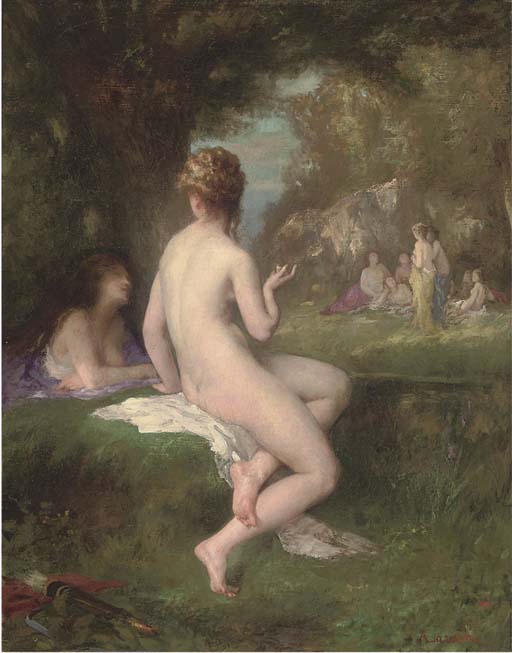
Armand Laroche, Diana bathing with the nymphs, credit Wikipedia
Nymphomania – Rusalka, at Royal Opera
Rusalka, lyric fairy tale in three acts, music by Antonin Dvorák, libretto by Jaroslav Kvapil, Orchestra of the Royal Opera House conducted by Semyon Bychkov, created and directed by Natalie Abrahami and Ann Yee, Royal Opera 21st February 2023, reviewed by Leslie Jones
Rusalka, as music journalist Kate Molleson has pithily remarked, is “a blend of folk song, luscious nature evocation and Wagnerian epic”. As such, it lends itself to diverse interpretations, including that of feminism. On Radio 3, Freethinking, Feb 1st, the subject up for discussion was Mélusine, another mythic water spirit (nymph), as depicted by the 14th writer Jean d’Arras in the Roman de Mélusine. Doctoral candidate Olivia Colquitt referred pointedly therein to the “male gaze”. For as the story goes, only if Mélusine can find a man who won’t look at her on Saturday, can she live as a human and go to heaven. The Freethinking panel agreed that this represents a demand for women’s space and that it also bespeaks men’s concern about what women get up to in private. A mermaid, we were reminded, can be a temptress and a voracious sexual being.
That “wise, eternal spirit” Ježibaba, played in this new production by Sarah Connolly, tells Rusalka that: “Man is an abomination of nature who has turned his back on Mother Earth”. In a 2022 staging of the work by Jack Furness for Garsington Opera, the set in Act 2 (at the Prince’s palace) was reminiscent of an abattoir. The Prince, evidently obsessed with killing animals, disemboweled a deer and presented its heart to Rusalka’s rival, the Foreign Princess (see Tim Ashley, The Guardian, 19 June 2022; Dominic Lowe, Bachtrack, 20 June 2022; Robert Hugill, Opera Today, June 2022).











You receive a free left-of-centre lecture now, whenever you go to a concert or opera!
But still the greatness of the music shines through.